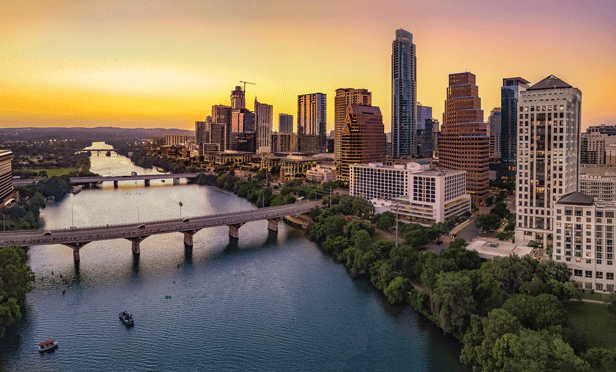March 25, the date of the agency's next board meeting, is the deadline the MTA has said it must take action in order to maintain a balanced budget by the end of the year, as mandated by law. But, sources tell GlobeSt.com, if the New York State Senate delivers a plan a few days after that board meeting, the agency certainly wouldn't turn it down. However, if a solution arrives even just one month later, the wheels would already be set in motion for service reductions and capital reallocations, which could take months to untangle within the system, sources say.
New York Building Congress President Richard T. Anderson calls the most recent MTA rescue plan from the state Senate unacceptable. He charges that the Senate would rather punt than "do the hard work required to permanently address the transit authority's growing financial problems."
The Senate plan was developed as an alternative to the Ravitch Commission proposal, or Ravitch plan, which has the support of the MTA as well as Gov. David Paterson. Ravitch plan supporters say it would help close the MTA budget deficit, taking away the need for drastic service cuts and a 23% fare increase. More to Anderson's concern, it would provide billions of dollars for the long term MTA capital program.
The MTA's current $23.7-billion 2005-2009 capital program is set to expire Dec. 31, 2009. Thus far, MTA CEO Elliot Sander has laid out general details of how the 2010-2014 plan would look with costs estimated at around $30 billion. That budget includes $22 billion to maintain the core system and $6 billion to fund continued construction of the Second Avenue Subway and East Side Access projects. The remainder would be funneled toward studies and prep work surrounding expansion projects like bringing Metro-North into Penn Station and building three new subway stations in the Bronx and two in Manhattan.
"The MTA remains focused on the Ravitch Commission's comprehensive plan, which puts the transit system back on solid ground for the long term," an MTA spokesperson tells GlobeSt.com.
Funding the future would be a 12% payroll tax in the 12 county area the MTA services, along with an 8% fare increase in June. But the plan also imposed bridge tolls, originally priced at $5 a crossing, an idea some say stoked opposition to the proposal. "It seems clear that the State Senate is being driven by avoidance of Harlem and East River tolls," Anderson tells GlobeSt.com.
The alternative Senate plan would eliminate bridge tolls, lower the proposed payroll tax to 25 cents for every dollar and set fare increases at 4%. Supporters say it would provide enough money to keep the authority going for the near future giving the Senate and MTA time to develop a plan.
But in addition, supporters say they would like an extensive audit of the MTA's accounting, arguing that [Senate plan supporters] aren't being unreasonable by asking for more time and data before committing billions to long term financing. Expressing outer borough frustration with what he called broken promises of local capital improvements, Bronx Democratic Senator and alternative plan supporter Pedro Espada tells GlobeSt "there is little trust with this notion of 'trust me, give me the money, I'll give you a plan.' Common sense should prevail."
For the record, the MTA does post its financial statements on its website. Further, the agency is overseen by an MTA Inspector General, the state and city comptrollers, the Capital Program Review board and the State Senate and Assembly standing committees as well as a number of transit groups. Still, opponents of the Ravitch plan say greater scrutiny is warranted before the state allocates more money towards the agency's infrastructure.
"This is taking a breath, giving the MTA operational relief, getting the auditing done, so that we can give ourselves and the MTA time to develop a more clear plan," Espada tells GlobeSt.com. He asserts that March 25 is not a real deadline, and says threats of doomsday on that date are not helpful to negotiating a solution.
"It may satisfy the 'let's see who blinks first' mentality but it will not work with the Senate majority," Espada says. He adds that that the Senate is determined to give the MTA the operational assistance it needs, so a fare increase is reduced to around 4%. As for capital improvements, Espada says "it's prudent to have the forensic accounting audit take place, one that is deeply focused and independent."P>Anderson says Senate opponents like Espada are avoiding the inevitable, and that avoiding any kind of plan that deals with capital maintenance and improvement creates what he calls "a very serious situation. The payroll tax as recommended by the Ravitch commission should be used for the capital program," he says, pointing out that the number of people driving into the city is a handful in comparison to the number of those who rely on public transit. "The operating side should be dealt with by a low fare increase andmotorist related charges, not a payroll tax." The MTA says that as many as 8.5 million rely on its services each day.
Want to continue reading?
Become a Free ALM Digital Reader.
Once you are an ALM Digital Member, you’ll receive:
- Breaking commercial real estate news and analysis, on-site and via our newsletters and custom alerts
- Educational webcasts, white papers, and ebooks from industry thought leaders
- Critical coverage of the property casualty insurance and financial advisory markets on our other ALM sites, PropertyCasualty360 and ThinkAdvisor
Already have an account? Sign In Now
*May exclude premium content© 2024 ALM Global, LLC, All Rights Reserved. Request academic re-use from www.copyright.com. All other uses, submit a request to [email protected]. For more information visit Asset & Logo Licensing.








